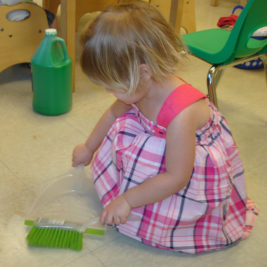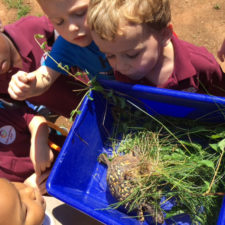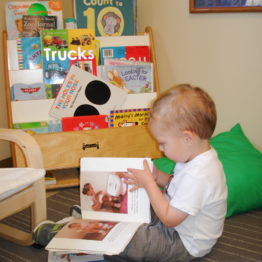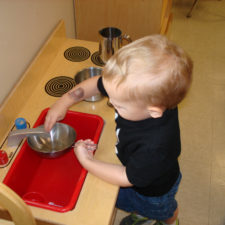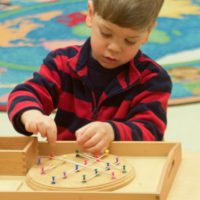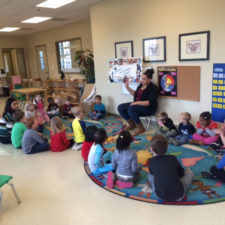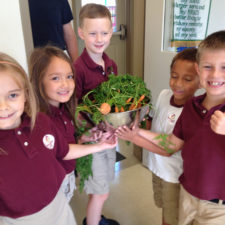Learning in the Montessori environment is focused primarily on individual and small group lessons, as well as community building activities that promote a collaborative and cooperative spirit amongst the students. The materials in the classroom are referred to as “works”. This is because we want our students to have respect for their day and the time spent at school, and as such, children go home with a sense of responsibility and accomplishment. Children are using different works at any given time during the school day, whether engaging in Practical Life, Sensorial, Language and Writing, Geography, Mathematics or Science. Interestingly – learning in the Montessori environment is not solely limited to new lessons. In fact, it involves the repetition of works that have already been introduced as well as extrapolation of those same works.
Many of the works are self-correcting, which is purposeful as it allows students to make errors, encouraging them to make adjustments and improvements the next time. The learning experience also incorporates working with other students of varying ages – such as an older child sitting with a younger classmate to demonstrate mastery of a work, thus building leadership qualities in young children that are critical later in life. We have all witnessed the miracle of a child learning by “doing” – and by creating an environment that is tactile and visual, children are encouraged to learn through touch and experience.
This environment is conducive to enable the full cycle of learning. It is also important to understand that the nature of the Montessori curriculum is to spiral upward, using each skill and piece of knowledge as it is mastered, serving as a foundation to build to higher levels of achievement and understanding. In this way, your children do not simply skim the surface of general concepts or breeze through units of study. They are active, focused participants, willingly engaged in learning in a highly concentrated fashion until they have a thorough understanding that will carry them onward and upward to the next phase of learning, trending from concrete concepts to more abstract ones.







